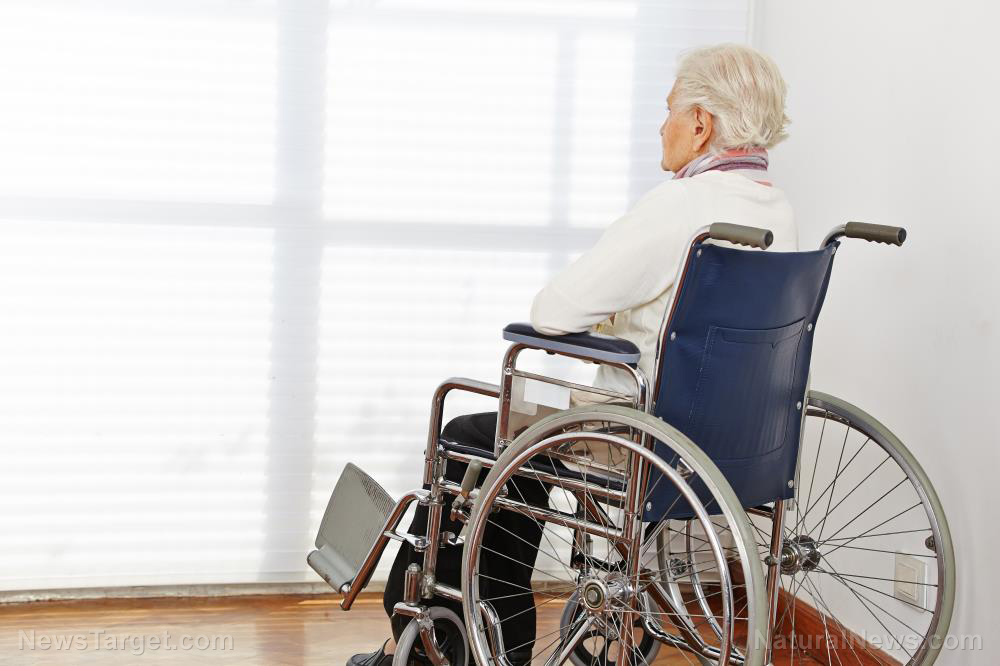Autistic and intellectually handicapped individuals are now being EUTHANIZED in the Netherlands
07/05/2023 / By Cassie B.

An alarming new study shows that people with autism and other types of intellectual disabilities are being euthanized in the Netherlands, and experts are concerned that these individuals are not capable of understanding the repercussions of their decision.
According to researchers from Kingston University, dozens of otherwise healthy people with intellectual handicaps or autism died via physician-assisted suicide from 2012 and 2021. Moreover, five individuals under the age of 30 who died this way cited autism as the only reason or a major factor in their decision to end their life.
During the period studied, around 60,000 people elected to end their lives with euthanasia in the Netherlands. The country’s euthanasia review committee made documents available for 900 of those cases as part of transparency measures. Many of those involved were older and were dealing with serious conditions such as cancer, ALS or Parkinson’s disease. However, of these cases, 39 had autism or intellectual disabilities, and 18 of them were younger than 50.
Some of them cited problems such as unbearable loneliness as being behind their desire to end their lives. For eight individuals, the sole cause of their desire to die was related to an intellectual disability, such as a lack of coping strategies, an inability to adjust to change, or social isolation.
One young man in his 20s, for example, reported feeling unhappiness since childhood and suffering from regular bullying and an inability to connect with other people. He chose to end his life because he felt that continuing to live that was “an abomination.”
This upsetting trend has led experts to question whether the country’s law permitting doctors to help suicidal patients die by providing them with lethal injections still aligns with its intentions when it was first enacted into law in 2002.
Ethicists, psychiatrists voice concerns about euthanizing patients with mental issues
According to ethicist Kasper Raus of Ghent University in Belgium, where this practice is also legal, the type of patient requesting a physician-assisted suicide has evolved dramatically in the last 20 years.
He points out that the Netherlands first legalized human euthanasia with the idea of helping people who are suffering from cancer. The requirements to qualify for the practice include suffering from an incurable disease that causes an “unbearable” amount of physical or mental anguish, although the decision is ultimately left up to doctors. This means that many patients may be able to curtail the requirements if they find a doctor who is willing to help them die.
One Dutch psychiatrist, Dr. Bram Sizzo, weighed in on the disturbing trend, lamenting the fact that some of these people seemed excited by the idea of dying and thought it would end their problems as well as those of their family.
Cambridge University Autism Research Centre Director Simon Baron-Cohen expressed concerns that people who have intellectual disabilities may not fully understand the decision to end their own life, saying it was “abhorrent” that these individuals were not provided with greater support instead of being euthanized.
Kingston University palliative care specialist Irene Tuffrey-Wijne said: “There’s no doubt in my mind these people were suffering. But is society really OK with sending this message, that there’s no other way to help them and it’s just better to be dead?”
It is hard to imagine that anyone who feels like death is the solution to problems like loneliness or social isolation could possibly be considered of sound enough mind to make such a major, irreversible decision. Some experts are rightfully concerned that allowing mentally ill people to choose to die despite not fully understanding the complexity of the situation is veering dangerously into eugenics territory.
Sources for this article include:
Submit a correction >>
Tagged Under:
assisted suicide, autism, big government, brain damaged, demonic times, eugenics, euthanasia, evil, humanitarian, insanity, medical extremism, Medical Tyranny, medical violence, mental health, Mental illness, Netherlands, twisted
This article may contain statements that reflect the opinion of the author
RECENT NEWS & ARTICLES
COPYRIGHT © 2018 EUTHANASIA.NEWS
All content posted on this site is protected under Free Speech. Euthanasia.news is not responsible for content written by contributing authors. The information on this site is provided for educational and entertainment purposes only. It is not intended as a substitute for professional advice of any kind. Euthanasia.news assumes no responsibility for the use or misuse of this material. All trademarks, registered trademarks and service marks mentioned on this site are the property of their respective owners.
















